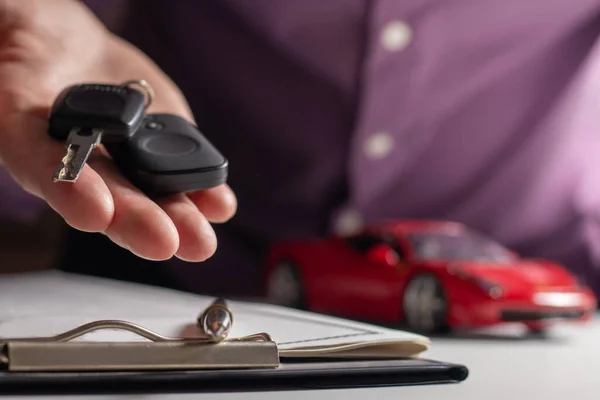California Lemon Law For Used Cars: How To Spot And Handle A Lemon Purchase
Purchasing a used car can be an exciting venture, but it’s important to be aware of California's Lemon Law protections for used vehicles. This law helps protect buyers from defective cars that require excessive repairs, ensuring they’re not stuck with a car that’s more trouble than it's worth. In this article, we’ll discuss California’s Lemon Law for used cars, how to identify a potential lemon, and the steps you can take if you've purchased one.
Understanding California Lemon Law for Used Cars
California's Lemon Law, also known as the Song-Beverly Consumer Warranty Act, primarily covers new cars; however, certain used cars also qualify for protection under this law. This coverage depends on several factors, such as the vehicle's warranty status, its purchase from a licensed dealership, and the nature of the defects.
Qualifying for the Lemon Law as a Used Car Buyer
To qualify for Lemon Law protections as a used car buyer, certain criteria must be met. Firstly, the car should have a warranty at the time of purchase. This can include the remainder of the manufacturer’s warranty or an extended dealer warranty. Vehicles sold "as-is," without a warranty, are generally not covered under the Lemon Law, meaning the buyer assumes responsibility for any repairs after the sale.
How to Spot a Lemon When Purchasing a Used Car
Identifying potential issues before purchasing a used car is essential to avoid ending up with a "lemon." Here are some effective ways to evaluate a vehicle and minimize the risk of buying a defective car, with protections provided under the California Used Car Lemon Law.
Inspect the Vehicle’s History Report
A vehicle history report provides a wealth of information about the car’s past, including its maintenance history, any reported accidents, and whether it has a history of repairs for recurring issues. This report can also indicate if the car was previously classified as a lemon. Reviewing a vehicle history report, from services like Carfax or AutoCheck, can reveal if a vehicle has been properly maintained and if there are any red flags.

Conduct a Thorough Inspection
Performing a hands-on inspection is vital when buying a used car. Look for signs of wear and tear, leaks, or rust, which can indicate underlying issues. Pay special attention to the engine, transmission, and suspension, as these are typically the most expensive components to repair.
Test Drive the Car
A test drive offers a valuable opportunity to assess how the car performs in real-world driving conditions. Listen for unusual sounds, such as knocking or squealing, and pay attention to how the car handles, brakes, and accelerates. Unusual noises, difficulty shifting gears, or vibrations may indicate serious issues with the car’s transmission or engine. Testing it on highways and in city traffic will provide a clearer sense of the car’s condition and whether there are any concerns that need further investigation.
Handling a Lemon Purchase: Steps to Take
Even with a diligent inspection, some buyers may end up purchasing a lemon. California’s Lemon Law can provide recourse if this happens, but understanding the steps to take is essential for navigating the process effectively.
Keep Records of All Repairs and Communications
Documentation is critical when filing a Lemon Law claim. Keep copies of all repair records, work orders, and communication with the dealer or manufacturer. These records should detail the nature of the problem, the repair attempts made, and the time spent in the repair shop. Thorough documentation will be valuable evidence if the case escalates to legal proceedings.
Notify the Dealer or Manufacturer
The first step in addressing a suspected lemon is to notify the dealer or manufacturer of the issue. Under California Lemon Law, they must have a reasonable number of attempts to repair the problem. Inform them of any recurring issues and ensure they understand that you’re concerned the car may qualify as a lemon. Some dealers may be willing to negotiate a resolution early on to avoid legal proceedings.

Consult with a Lemon Law Attorney
If repeated repair attempts fail to resolve the problem, consulting with a Lemon Law attorney can help you explore your legal options. A knowledgeable attorney can help you understand the specifics of your case and guide you through the process of filing a claim. Many Lemon Law attorneys work on a contingency basis, meaning you won’t pay unless they win your case.
Preventing Future Lemon Purchases
To avoid encountering lemon issues with future purchases, there are a few precautions to keep in mind.
Buy from Reputable Dealerships
Reputable dealerships have more stringent quality control measures and are less likely to sell vehicles with significant defects. Purchasing from a well-reviewed, licensed dealership can reduce the risk of buying a lemon and provides additional recourse if issues arise. If possible, check online reviews, ask for references, and inquire about the dealership’s return policy for added peace of mind.
Consider Certified Pre-Owned Vehicles
Certified pre-owned (CPO) vehicles are often a safer choice, as they come with a comprehensive inspection and warranty. While CPO cars may cost more, they offer increased reliability and often include a manufacturer-backed warranty, covering many repair costs that a used car might otherwise accrue. CPO programs vary by manufacturer, so researching these details can help you make an informed choice.
Key Points on California Lemon Law for Used Cars
- Warranty Requirement: For a used car to qualify under California’s Lemon Law, it generally needs to have an existing manufacturer’s warranty or an extended dealer warranty at the time of purchase.
- Reasonable Repair Attempts: The vehicle should have undergone a reasonable number of repair attempts by the dealer or manufacturer to resolve a significant defect.
- Substantial Impairment: The defect must significantly impact the car's safety, functionality, or value, such as engine failures, transmission issues, or brake malfunctions.
- Exclusions: Vehicles sold "as-is," without any form of warranty, are not covered under the Lemon Law, meaning the buyer assumes full responsibility for repairs.
4655 Cass St, San Diego, CA 92109, United States.
Phone: +1 619-795-9430

